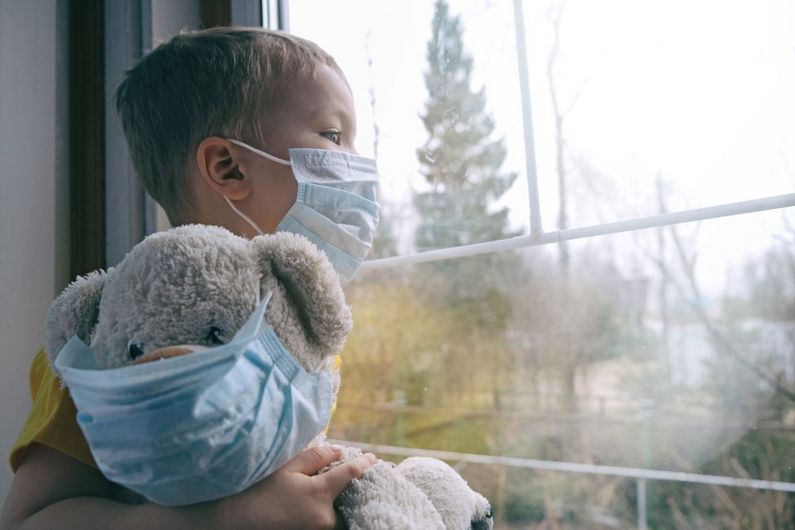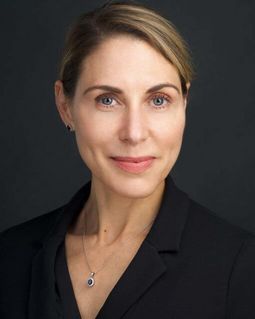How is COVID-19 affecting our kids? Children’s Health and Education Observatory gets $5M to study and address the impact
- UdeMNouvelles
06/14/2021
- Martine Letarte
The Children’s Health and Education Observatory has received a $5 million Fonds de recherche du Québec grant to study the pandemic’s impact on children and support more effective intervention.
How are children faring after more than a year of living with COVID-19? We don’t really know because we don’t see the world through their eyes, but there are indications that the pandemic could have significant long-term effects on some children’s psychosocial development and learning.
“Missing three months of school in spring 2020, followed by intermittent class closures during the 2020-2021 school year, may have affected learning, and the scientific literature is starting to show that this is indeed the case for disadvantaged children,” says Sylvana Côté, UdeM professor and director of the Children’s Health and Education Observatory.
The Observatory has been awarded a $5 million grant by the Fonds de recherche du Québec – Société et Culture to study the issue.
To assess COVID’s impact on learning, it must be measured. Some jurisdictions continued standardized testing during the pandemic but Québec cancelled the province-wide “ministerial exams” set for June 2020 and 2021.
Getting the data
With no data available on children’s learning during COVID, the Observatory decided to administer the ministerial reading exam to a subset of children. In 2017, all Québec 5-year-olds enrolled full time in kindergarten – about 80,000 children – took the Québec Survey of Child Development in Kindergarten conducted by the Institut de la statistique du Québec (ISQ). The Observatory decided to test these children, now in grade 4, and put out a call to their teachers.
The response was overwhelming, says Côté, who is a professor in the Department of Social and Preventive Medicine at UdeM’s School of Public Health and a researcher at the UdeM-affiliated CHU Ste-Justine Research Centre: “We wanted to recruit 300 teachers but instead got over 600! Now we are working with the education ministry to try to accommodate everyone. By the end of June, almost 12,000 Grade 4 students across Québec will have taken the ministerial exam in reading.”
As the exams won’t count toward the children’s grades, teachers have had to find other ways to motivate their students. Apparently they have succeeded. “The response has been fabulous. The kids are proud to contribute to science,” Côté is happy to report.
The results will be compared with those for the ministerial exam in 2019, before COVID struck. “This will tell us where children from different schools and types of classes are at in reading, a crucial skill that has a major impact on learning in other subjects.”
Helping children who are struggling
When planning for the post-COVID reopening of Québec’s economy began in 2020, Remi Quirion, Québec’s chief scientist, and the ministry of the economy and innovation realized that children would need help to catch up.
“Simulations by economists have shown that pandemic-related learning losses could have a major impact on a country’s GDP,” notes Côté. “The pandemic hasn’t hit everyone equally hard, so existing socioeconomic inequalities could be deepened. We want to help mitigate the impact of the pandemic as much as possible through initiatives to support children’s development.”
Such interventions could take many forms, such as special support services, prevention programs, or social innovations. Québec’s education ministry is currently working on implementing a range of measures to help children and teens catch up academically, including a mentorship program. But as Prof. Côté explains, “for such interventions to work, we really have to understand the nature and extent of the problem so that we can tailor the interventions to children’s needs.”
The strength of interdisciplinary collaboration
The Observatory team is focusing on four main areas of child health and development: education, mental health and wellness, infection and immunity, and healthy lifestyles. Economic development and social innovation are factors that cut across all these dimensions. Experts from a number of disciplines and several universities are therefore working together on the project.
“We have researchers in infectious diseases, immunology, biostatistics, education, economics, psychology and psychoeducation on our team,” says Côté. “The interdisciplinary approach is central to our way of working.”
The Observatory is also working closely with the Québec government, in particular the ISQ, to make the dataset accessible and easy to use for the development of more effective interventions.
“We are lucky in Québec to have administrative data for the entire population – essentially unbiased data. For example, we have comprehensive data on health at birth, various psychosocial variables, the use of health and social services, and so on. The scientific community and policy-makers have long wanted this data to be made available and useable for improving public health, and the pandemic has made this even more pressing. The situation is urgent.”
This research could also be valuable for elucidating the long-term consequences of COVID-19. “We will be able to examine the life trajectories of people who lived through the pandemic, which will give us insight into promoters of resilience and the effectiveness of different interventions. This is important research not only for the present but for the decades to come.”














